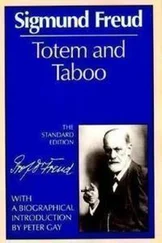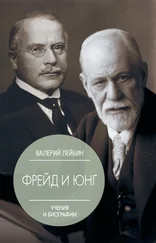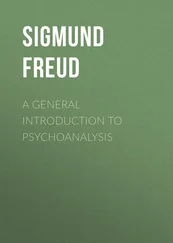The capacity for directing libidinous occupation with objects towards persons as well must also be accorded to all normal persons. The inclination to transference on the part of the neurotic we have mentioned, is only an extraordinary heightening of this common characteristic. It would be strange indeed if a human trait so wide–spread and significant had never been noticed and turned to account. But that has been done. Bernheim, with unerring perspicacity, based his theory of hypnotic manifestations on the statement that all persons are open to suggestion in some way or other. Suggestibility in his sense is nothing more than an inclination to transference, bounded so narrowly that there is no room for any negative transfer. But Bernheim could never define suggestion or its origin. For him it was a fundamental fact, and he could never tell us anything regarding its origin. He did not recognize the dependence of suggestibility upon sexuality and the activity of the libido. We, on the other hand, must realize that we have excluded hypnosis from our technique of neurosis only to rediscover suggestion in the shape of transference.
But now I shall pause and let you put in a word. I see that an objection is looming so large within you that if it were not voiced you would be unable to listen to me. "So at last you confess that like the hypnotists, you work with the aid of suggestion. That is what we have been thinking for a long time. But why choose the detour over reminiscences of the past, revealing of the unconscious, interpretation and retranslation of distortions, the tremendous expenditure of time and money, if the only efficacious thing is suggestion? Why do you not use suggestion directly against symptoms, as the others do, the honest hypnotists? And if, furthermore, you offer the excuse that by going your way you have made numerous psychological discoveries which are not revealed by direct suggestion, who shall vouch for their accuracy? Are not they, too, a result of suggestion, that is to say, of unintentional suggestion? Can you not, in this realm also, thrust upon the patient whatever you wish and whatever you think is so?"
Your objections are uncommonly interesting, and must be answered. But I cannot do it now for lack of time. Till the next time, then. You shall see, I shall be accountable to you. Today I shall only end what I have begun. I promised to explain, with the aid of the factor of transference, why our therapeutic efforts have not met with success in narcistic neuroses.
This I can do in a few words and you will see how simply the riddle can be solved, how well everything harmonizes. Observation shows that persons suffering from narcistic neuroses have no capacity for transference, or only insufficient remains of it. They reject the physician not with hostility, but with indifference. That is why he cannot influence them. His words leave them cold, make no impression, and so the mechanism of the healing process, which we are able to set in motion elsewhere, the renewal of the pathogenic conflict and the overcoming of the resistance to the suppression, cannot be reproduced in them. They remain as they are. Frequently they are known to attempt a cure on their own account, and pathological results have ensued. We are powerless before them.
On the basis of our clinical impressions of these patients, we asserted that in their case libidinous occupation with objects must have been abandoned, and object–libido must have been transformed into ego–libido. On the strength of this characteristic we had separated it from the first group of neurotics (hysteria, anxiety and compulsion neuroses). Their behavior under attempts at therapy confirms this supposition. They show no neurosis. They, therefore, are inaccessible to our efforts and we cannot cure them.
Twenty-eighth Lecture
General Theory of the Neuroses - Analytical Therapy
You know our subject for today. You asked me why we do not make use of direct suggestion in psychoanalytic therapy, when we admit that our influence depends substantially upon transference, i.e., suggestion, for you have come to doubt whether or not we can answer for the objectivity of our psychological discoveries in the face of such a predominance of suggestion. I promised to give you a comprehensive answer.
Direct suggestion is suggestion directed against the expression of the symptoms, a struggle between your authority and the motives of the disease. You pay no attention during this process to the motives, but only demand of the patient that he suppress their expression in symptoms. So it makes no difference in principle whether you hypnotize the patient or not. Bernheim, with his usual perspicacity, asserted that suggestion is the essential phenomenon underlying hypnotism, that hypnotism itself is already a result of suggestion, is a suggested condition. Bernheim was especially fond of practising suggestion upon a person in the waking state, and could achieve the same results as with suggestion under hypnosis.
What shall I deal with first, the evidence of experience or theoretic considerations?
Let us begin with our experiences. I was a pupil of Bernheim's, whom I sought out in Nancy in 1889, and whose book on suggestion I translated into German. For years I practised hypnotic treatment, at first by means of prohibitory suggestions alone, and later by this method in combination with investigation of the patient after the manner of Breuer. So I can speak from experience about the results of hypnotic or suggestive therapy. If we judge Bernheim's method according to the old doctor's password that an ideal therapy must be rapid, reliable and not unpleasant for the patient, we find it fulfills at least two of these requirements. It can be carried out much more rapidly, indescribably more rapidly than the analytic method, and it brings the patient neither trouble nor discomfort. In the long run it becomes monotonous for the physician, since each case is exactly the same; continually forbidding the existence of the most diverse symptoms under the same ceremonial, without being able to grasp anything of their meaning or their significance. It is second–rate work, not scientific activity, and reminiscent of magic, conjuring and hocus–pocus; yet in the face of the interest of the patient this cannot be considered. The third requisite, however, was lacking. The procedure was in no way reliable. It might succeed in one case, and fail with the next; sometimes much was accomplished, at other times little, one knew not why. Worse than this capriciousness of the technique was the lack of permanency of the results. After a short time, when the patient was again heard from, the old malady had reappeared, or it had been replaced by a new malady. We could start in again to hypnotize. At the same time we had been warned by those who were experienced that by frequent repetitions of hypnotism we would deprive the patient of his self–reliance and accustom him to this therapy as though it were a narcotic. Granted that we did occasionally succeed as well as one could wish; with slight trouble we achieved complete and permanent results. But the conditions for such a favorable outcome remained unknown. I have had it happen that an aggravated condition which I had succeeded in clearing up completely by a short hypnotic treatment returned unchanged when the patient became angry and arbitrarily developed ill feeling against me. After a reconciliation I was able to remove the malady anew and with even greater thoroughness, yet when she became hostile to me a second time it returned again. Another time a patient whom I had repeatedly helped through nervous conditions by hypnosis, during the treatment of an especially stubborn attack, suddenly threw her arms around my neck. This made it necessary to consider the question, whether one wanted to or not, of the nature and source of the suggestive authority.
Читать дальше







